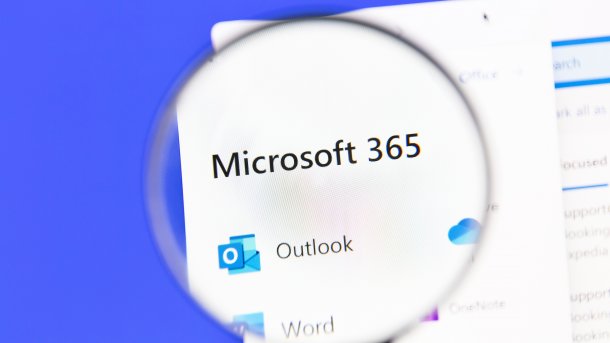Microsoft lays hands on login data: Beware of the new Outlook
The free new Outlook replaces Mail in Windows, and later also the classic Outlook. It sends secret credentials to Microsoft servers.

(Image: IB Photography/Shutterstock.com)
The new Outlook is not what it seems at first glance: a replacement for Microsoft Office Outlook - at least not yet. What it definitely is, however: way too curious.
Microsoft is singing the praises of the new Outlook and wants to persuade users to switch. But beware: if you try out the new Outlook, you risk transferring your IMAP and SMTP credentials of mail accounts and all your emails to Microsoft servers. Although Microsoft explains that it is possible to switch back to the previous apps at any time, the data will already be stored by the company. This allows Microsoft to read the emails.
(Image: Screenshot / rei)
The new Outlook now appears as a recommended app in the Windows Start menu of Windows 11 devices with the 2023 update. The Outlook client itself also offers to test the new Outlook version with a "The new Outlook" switch. This is still under development, but is set to replace the mail program and the calendar included in Windows in 2024. In a recent tech community article, Microsoft employee Caitlin Hart also explains that it will also replace the classic Outlook. However, unlike the Windows Mail and Calendar apps, the timetable for this has not yet been set.
Videos by heise
New Outlook: Warning about data transfers
When adding a mail account in the new Outlook that is not hosted by Microsoft but is located on company mail servers, for example, the program displays a message. It links to a support article that simply states that non-Microsoft accounts are synchronized with the Microsoft cloud, whereby Gmail, Yahoo, iCloud and IMAP accounts are currently supported. The new Outlook also does this in the versions for Android, iOS and Mac. This means that copies "of your email, calendar, and contacts will be synchronized between your email provider and Microsoft data center". This gives the company full access to all emails and allows it to read and analyze them. Microsoft wants to provide functions that way that Gmail and IMAP do not offer.
(Image: Screenshot / rei)
The note makes you wonder: What does Microsoft transfer where? When creating an IMAP account, c't was able to sniff the traffic between new Outlook and the Microsoft servers. It contained the target server, log-in name and password which were sent to those Servers of Microsoft. Although TLS-protected, the data is sent to Microsoft in plain text within the tunnel. Without informing or inquiring about this, Microsoft grants itself access to the IMAP and SMTP login data of users of the new Outlook.
(Image: Screenshot)
Other accounts
When switching from the old Outlook to the new one, it is installed the new software in parallel. Previously set up IMAP accounts are not automatically transferred, but the account stored in Windows is. During the test with Google accounts, authentication with OAuth2 was used. Users receive an authentication request and Microsoft does not receive any specific access data, but only an access token that users can revoke again.
An answer to our request for a statement from Microsoft is still pending. At this point in time, however, we must warn against trying out the new Outlook without thinking. In addition to all the emails, some credentials may even end up with Microsoft.
Microsoft already attracted attention with such data redirections at the beginning of the year. After Office updates were applied on Mac computers, Outlook redirected the data to Microsoft's cloud servers without any user notification. At that time, the remedy was to delete IMAP accounts and set them up again. However, this is obviously no longer helpful with the new Outlook.
EU Data Protection Institutions get involved
The Federal Commissioner for Data Protection and Freedom of Information of Germany, Professor Ulrich Kelber, is alarmed by the data detour in Microsoft's new Outlook. He posted on Mastodon that he wants to ask for a report from the Irish Data Protection Commissioner, who is responsible for companies like Microsoft, during a meeting of the European data protection supervisory authorities on Tuesday of the coming week.
(dmk)